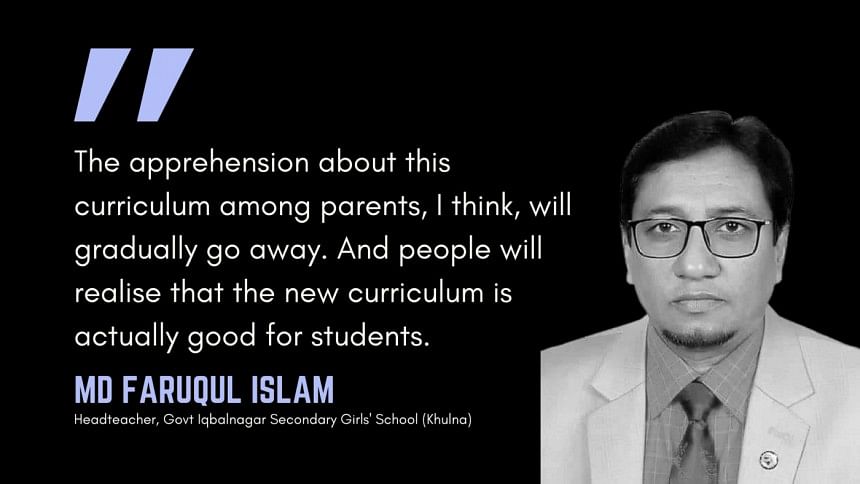Good for students, good for teachers

I believe the new school curriculum is a landmark and timely advancement, aligning with similar approaches already adopted by 156 countries. Our government has dedicated considerable efforts to designing and implementing this curriculum and, if embraced by students, it has the potential to revolutionise their learning experience.
Unlike the previous curriculums which heavily emphasised rote memorisation and bookish knowledge, the new curriculum prioritises practical education. For example, instead of simply calculating the area of a field based on textbook dimensions, students actively engage in real-world scenarios. Using measurement tools and applying maths, they now measure the area of actual fields.
The new curriculum discourages rote learning and dependence on private tuition. Attendance becomes crucial, as teachers directly guide students through the new learning process. This eliminates the need for parents to spend exorbitant amounts on private tuition and empowers teachers to deliver first-hand instruction, potentially leading to significant improvement in students' capabilities.
Indeed, there are challenges to implementing anything new. When the creative method was first introduced, many teachers could not fully comprehend the concept. However, from what I understand, the teachers have received training in two phases and have better understanding of the new curriculum, compared to the creative approach. So I hope there will be no problem.
The ratio of students and teachers and the ratio of students and classroom resources are also another persistent issues. However, as far as I know, the government is already working on this. In government schools, there were 60 students per section in the previous year. But from this year, the number of students has been reduced by five; now, there are 55 students in each section. Next year, it will be decreased by another five students. Eventually, there will be 40 students per section. I believe that will help implement this curriculum and will increase class engagement.
I think students are also showing enthusiasm about this new curriculum. There are now different parameters of achievement, without competition. The shift from competition fosters a more inclusive atmosphere, where students no longer hide in the back or fear being called on by teachers. And in teamwork, everyone actively participates and expresses themselves freely.
Parents, on the other hand, were wary of the new curriculum at first as there was misinformation doing rounds on social media platforms. There were allegations that the new curriculum would only teach how to cook or something like that. But now they can see for themselves what the textbooks contain. Perhaps in one of the sections, there are lessons on cooking, but there are many other lessons, too. I believe, in order to be a complete person, students have to learn how to cook, how to present an idea, how to practically implement maths equations in real-life scenarios, and so on. I think we can rest assured because many highly capable education specialists were involved in formulating this curriculum. Surely they don't want to do anything that can lead our children astray. The apprehension about this curriculum among parents, I think, will gradually go away. And people will realise that the new curriculum is actually good for students.
I think what is needed now are physical changes in the classroom setting. This is a very practical and new way of education, so our classrooms must adapt, too. I believe the government will gradually work on that and we can have a better environment to implement this curriculum.
Md Faruqul Islam is headteacher of Govt Iqbalnagar Secondary Girls' School in Khulna.
Views expressed in this article are the author's own.
Follow The Daily Star Opinion on Facebook for the latest opinions, commentaries and analyses by experts and professionals. To contribute your article or letter to The Daily Star Opinion, see our guidelines for submission.

 For all latest news, follow The Daily Star's Google News channel.
For all latest news, follow The Daily Star's Google News channel. 










Comments